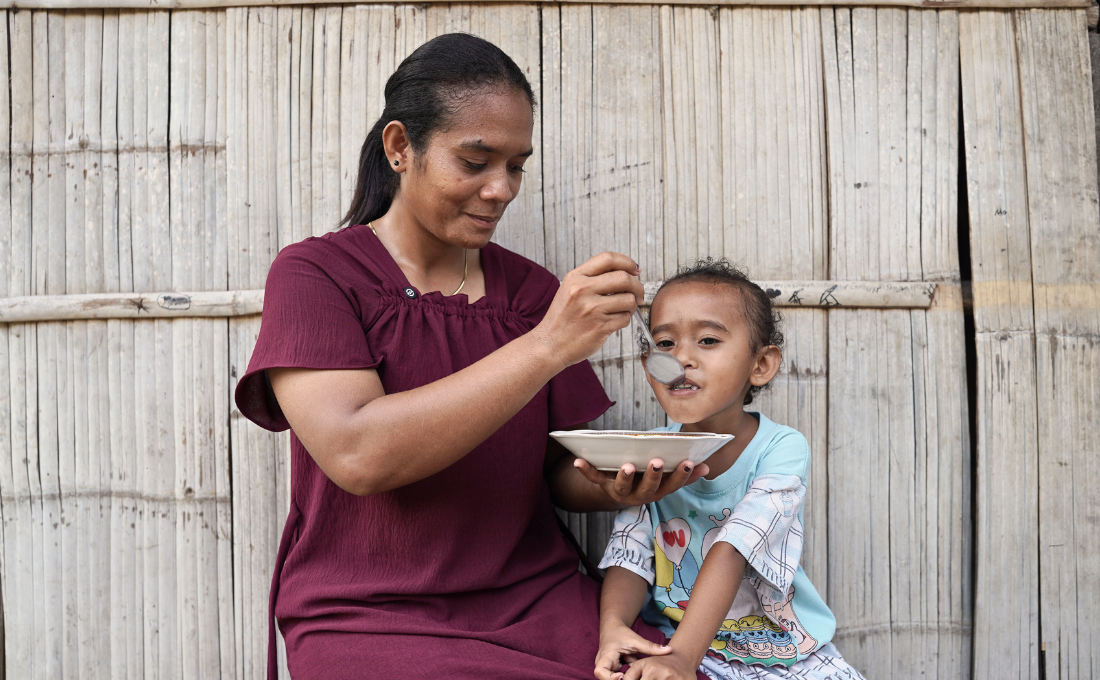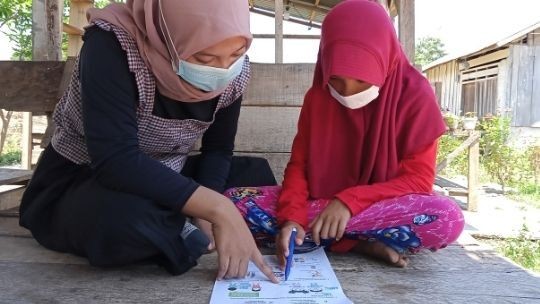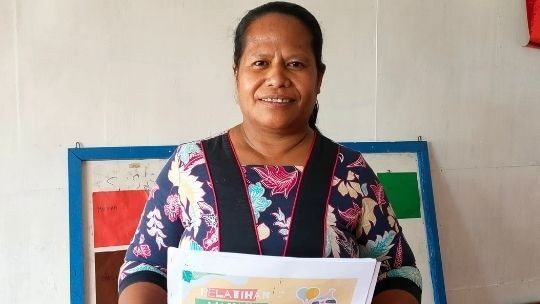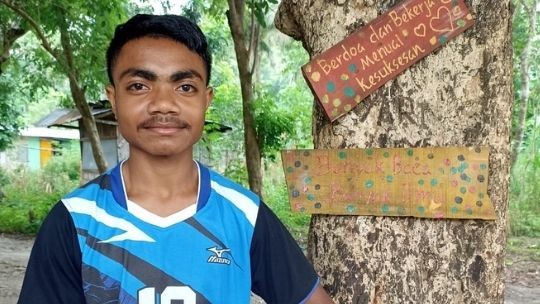Empty Plates, Empty Futures: Nutrition and Economic Hardship in Ende

For two consecutive months, Maria's weight has not increased. Maria is four years old. She lives in a remote village in Ende Regency, East Nusa Tenggara. The latest weighing data at the Posyandu (integrated health post) recorded Maria's weight at only 14 kg. Ideally, a girl of her age should weigh 16.1 kg.
"Since she was two years old until now, her weight has fluctuated," said Rosta, Maria's primary caregiver. This is due to Maria's daily menu lacking variety and balanced nutrition. "She eats fish about three times a month. Most often, Maria eats rice with salt and warm water. Or if not, rice with clear vegetable soup," Rosta explained.
She also finds it difficult to provide a varied menu due to limited knowledge. As a mother, Rosta wants her child to grow healthy and have her nutritional needs met. However, she lacks access to the necessary information or insights to care for and feed her child.
"If she keeps eating the same menu, she refuses to eat. She might only eat twice a day. But if the menu is different, she will eat," Rosta said.
In addition to the parents' limited knowledge and capacity to provide a balanced and varied nutritious menu, the availability of local high-protein food ingredients is also a factor in why children in the village experience undernutrition. Almost all types of high-protein food ingredients, such as eggs and fish, must be purchased and brought from outside the village.
Purchasing the right food ingredients for children's nutritional intake is also closely related to family economic capacity. Meanwhile, most parents in the villages of Ende rely on income from farming, which does not necessarily provide a steady income. The village's economic cycle is also not strong enough to guarantee the welfare of farmers.
Efforts to fulfill the nutrition of children living in the most remote villages in Indonesia require cross-sectoral interventions, such as health and economy. In the health sector, activities such as Posyandu and Nutritional Posts must more effectively develop parental care, especially in providing balanced nutritious food. In addition, the utilization of local food ingredients and the availability of protein ingredients also need special attention.
In the economic sector, activities aimed at driving family economies are very important. The family's ability to provide a balanced nutritious menu every day, at every meal, for every child, depends heavily on economic capacity.
Therefore, Wahana Visi Indonesia initiated an intervention that combines these two sectors through the AMPUH (Action to Prevent Malnutrition with Daily Egg Food) program in assisted villages located in Ende. This program will increase knowledge, change caregiving practices, and improve parents' capacity to provide accessible protein intake that can be used as an additional source of income.
Wahana Visi Indonesia believes that growing healthy with ENOUGH nutrition is every child's right. We hope this dream can also be our shared with you. Let's support children in Ende and channel contributions to make every Indonesian child have ENOUGH nutrition.
Author: Mariana Kurniawati (Communication Executive)



